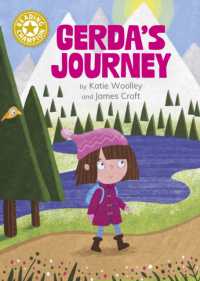Full Description
Co-creative methods are increasingly used to understand and facilitate integration processes of migrants in immigrant societies. This volume aims to contribute to the debates on the ways in which co-creative methods may advance migrant integration. More specifically, the contributions investigate how co-creative research strategies can provide insights into how integration processes into various domains of immigrant society (e.g., language learning, housing, employment) are shaped, and how they can contribute to policy making and new policy practices. Because co-creative methods are relatively new approaches to research and policy making, the authors evaluate and demonstrate the pitfalls and benefits of using them. Starting with a theoretical and methodological overview of co-creative methods, empirical chapters document and critically assess ongoing research experiences and studies to incorporate co-creative methods in academic research across Europe.
Co-creation in Migration Studies analyses the use of co-creative methods in migrant research and policy making, reflects upon the conditions required to successfully implement these methods, and offers new insights and recommendations for future research and policy making practices.
Contributors: Chloe Ange (Universite Libre de Bruxelles), Maria Amata Garito (International Telematic University), Hanne Apers (University of Antwerp), Maurizio Bergamaschi (University of Bologna), Ingrid Breckner (HafenCity University Hamburg), Fidel C.T. Budy (Sheffield Hallam University), Alessandro Caforio (International Telematic University), Teresa Carlone (University of Bologna), Emanuela Dal Zotto (University of Pavia and Milan University), Rianne Dekker (Utrecht University School of Governance), Valentina Fusari (University of Pavia), Karin Geuijen (Utrecht University School of Governance), Karen Latricia Hough (Sheffield Hallam University), Sara Lembrechts (Ghent University), Marie Malchow (HafenCity University Hamburg), Carolina Mudan Marelli (University of Bologna), Joerg Rainer Noennig (HafenCity University Hamburg), Caroline Oliver (University College London), Alessandro Pollini (International Telematic University), Andrea Rea (Universite Libre de Bruxelles), Lena Richter (Radboud University Nijmegen), Yara Abdel Samad (Sheffield Hallam University), Rosa Thoneick (HafenCity University), Lore Van Praag (University of Antwerp), Ellen Van Vooren (Children's Rights Knowledge Centre)
Contents
Prelude Lore Van Praag
Introduction to the use of co-creative research methods in migration studies Hanne Apers, Lena Richter and Lore Van Praag
Part I: The use of co-creative methodologies in academic research
The use of co-creative methods for the development of local policy implementation with migrant newcomers in the MICADO project in Antwerp Hanne Apers and Lore Van Praag
Co-creation and decision-making processes with migrants: some evidence from the MICADO co-creation experience in Bologna Maurizio Bergamaschi, Teresa Carlone and Carolina Mudan Marelli
Complex arrival procedures as a challenge in migration studies: a comparative analysis of quantitative and qualitative methodologies within migration research Rosa Thoneick, Marie Malchow, Ingrid Breckner and Jörg Noennig
Design-driven co-creation for migrants' integration in European Cities: REBUILD project Maria Amata Garito, Alessandro Pollini and Alessandro Caforio
Generating self-esteem and fostering social recognition: co-creating innovative practices for newcomers' integration in Brussels Chloë Angé and Andrea Rea
ICT Enabled Public Services for Migration (MIICT): how co-creative practices advanced migrants' integration in the EU 169 Fidel C. T. Budy, Karen Latricia Hough and Yara Abdel Samad
Part II: The use of co-creative research methods in policymaking
Co-creating asylum reception in a living lab: learning from the experiences of refugees and locals Rianne Dekker, Karin Geuijen and Caroline Oliver
How can universities commit to designing and implementing inclusive practices for forced migrants? Emanuela Dal Zotto and Valentina Fusari
Involving children and young people in policymaking: a children's rights-based approach to co-creative practice in REFLECTOR 247 Ellen Van Vooren and Sara Lembrechts
ConclusionLore Van Praag
About the Authors






